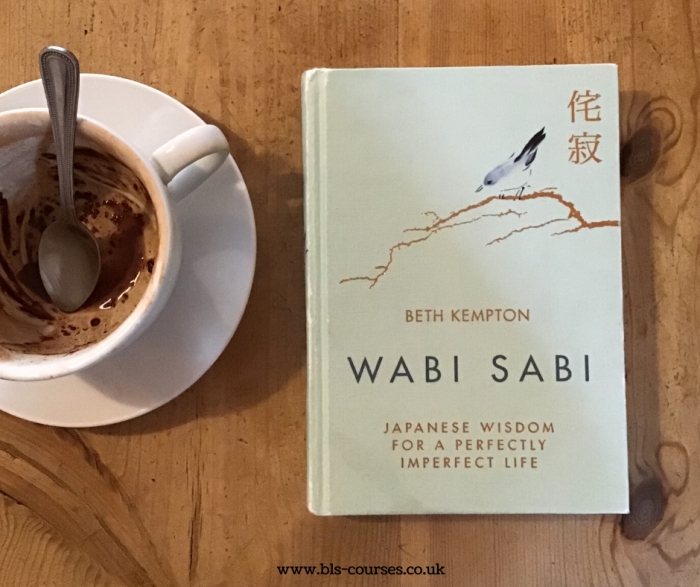“The forest does not care what your hair looks like. The mountains don’t move for any job title. The rivers keep running regardless of your social-media following, salary or your popularity. The flowers keep on blooming, whether or not you make mistakes. Nature just is, and welcomes you, just as you are.” Beth Kempton
I had a different article planned for today. But, I’ve been reading Wabi Sabi for the last week or so, every day, to keep my mind occupied and to feel calm, inspired and hopeful. I needed to find strength inside me. I enjoyed the read so much, and I’m excited to be sharing my insights here with you today.
I learnt about wabi sabi for the first time in autumn 2018 when I came across the book Wabi-Sabi Welcome by Julie Pointer Adams (you can read my review here). I was so overwhelmed by the beauty of this Japanese philosophy, that I was sad when I read the last page of it. I felt very similar this time, I wanted to continue reading about this perfectly imperfect philosophy and enjoy the little pleasure coming from reading and learning about it.
Beth Kempton, the author, is a Japologist who studied Japanese at university and spent many years living and working in Japan. As we read on the first pages of the book, she considers Japan her second home.
The book contains 8 chapters: first we learn about the origins and characteristics of wabi sabi, how to create simple yet beautiful interiors in our homes, the importance of connection with nature (shinrin-yoku aka forest bathing), the gentle reminder that everything is impermanent, imperfect and incomplete, how to overcome the fear of creative failures (!), how to maintain/create good relationships and to enjoy our career path, and finally how to enjoy the little moments in life.
My absolute favourite parts were the little reminiscences from the author’s past experiences; whether as a student, traveller, interpreter or researcher in Japan. They made the whole concept of wabi sabi more alive, funny and real. They added an emotional aspect to this wise Japanese philosophy.
Have you read a different publication on wabi sabi? Let me know in the comments below.
Kinga Macalla

